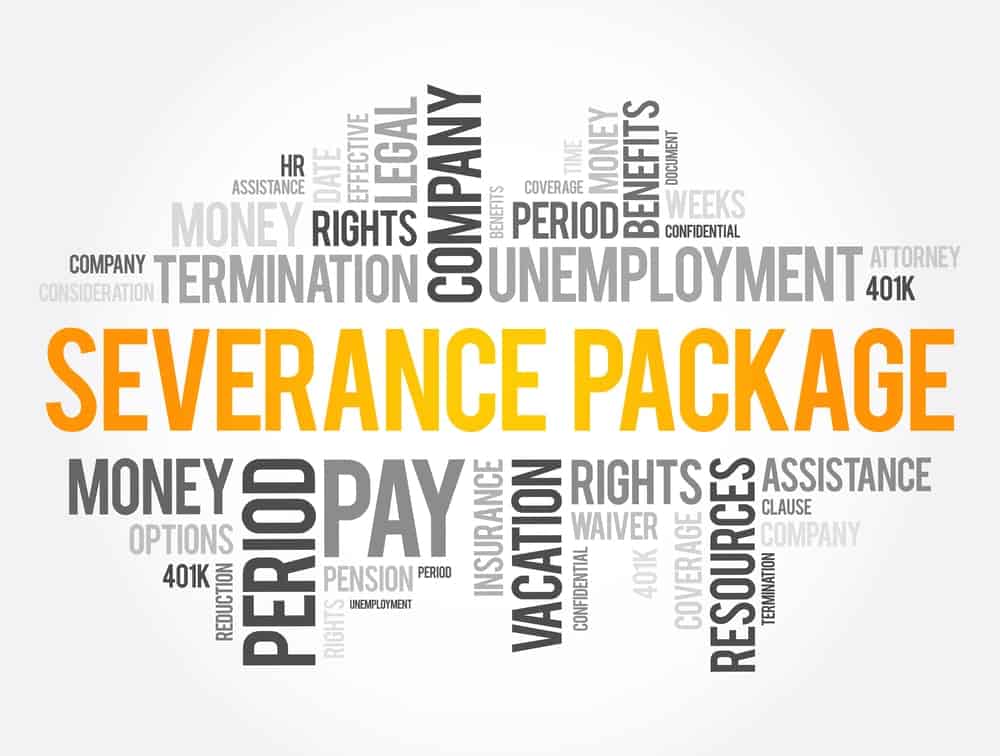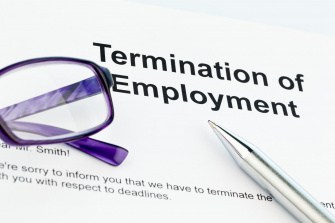
Breakdown of Your Severance Package in Kamloops British Columbia

If your employment is terminated against your will and through no fault of your own (i.e. there is no termination with just cause) and you do not receive adequate notice from your employer, you are entitled to severance pay in BC.
This may also be known as a severance agreement or severance package.
It may be a lump sum cash payment or a continuing salary payment that includes benefits but your employer must follow specific guidelines laid out in BC employment law or you may be able to claim compensation or unfair dismissal.
How does severance pay work in BC?
Almost all employees who have worked with a company for longer than three months and who are terminated without reasonable notice are entitled to severance pay.
This payment is regarded as compensation for an employee who loses their job unwillingly and for no good reason.
If you accept severance pay from your employer, you can be terminated immediately and do not have to serve a notice period.
An employer who wants to avoid paying severance must provide advanced written notice – the longer you have worked at the company, the more notice must be provided.
According to the employment standards in BC:
- After serving three months, an employer must give you one week’s notice
- After twelve consecutive months of employment, an employer must give you two week’s notice
- After three consecutive years of employment, an employer must give you three week’s notice
- For each additional year of employment (up to a maximum of eight years), an employer must give you an additional one week’s notice
Is severance pay mandatory in BC?
Severance pay is mandatory in some circumstances when employers terminate employees in British Columbia:
- When reasonable written notice is not provided by the employer (as per the above guidelines), there is no just cause to dismiss you, and you do not want to leave
- If you have provided written notice of intention to quit and your employer decided to end your employment before the departure date
However, severance is not mandatory in the following circumstances:
- You have not completed three months of continuous employment with the employer
- You quit voluntarily without providing written notice
- You decide to retire
- You work on an on-call or limited-term contractual basis
- You are offered an alternative position or employment
- The circumstances of your departure are out of the employer’s control
How much severance do you get in BC?

The amount of severance pay you are due depends largely on your length of service with the company.
According to the British Columbia Employment Standards Act, there are some minimums that you are entitled to:
- After serving three months of continuous employment, you are entitled to one week’s pay
- After twelve consecutive months of employment, you are entitled to two week’s pay
- After three consecutive years of employment, you are entitled to three week’s pay
- For each additional year of employment (up to a maximum of eight years), you are entitled to an additional one week’s pay
However, check your employment contract or the employee handbook as sometimes the severance package is more generous (this is especially the case in industries protected by unions).
In some cases, experienced lawyers can also negotiate more generous packages.
How is your severance package calculated in BC?
There is a formula for calculating severance pay.
One week’s pay is calculated by considering your total wages (excluding any overtime hours worked) over a period of eight weeks and divided by eight to get an average.
So, if you worked for an employer for three years, the calculation would be as follows:
- Total wages received over eight weeks divided by eight
- Multiply this total by three
This figure is the minimum severance pay that you are due.
Do you pay income tax on your severance pay?
Yes, severance pay is taxable.
The amount of tax you pay depends on how your employer pays it.
Tax is likely to be higher if you receive your severance pay as a lump sum rather than as a salary continuance.
Lump-sum severance pay
With a lump-sum payment, your employer will deduct income tax but not Canada Pension Plan (CPP) contributions, Quebec Pension Plan (QPP) contributions, or Employment Insurance (EI) premiums.
However, you can request that your employer pays it into a Registered Retirement Savings Plan (RRSP) or a Registered Pension Plan (RPP) and, in this way, no tax will be deducted until you withdraw the money from your plan.
Severance pay as salary
If you receive severance pay as salary continuance, your regular pay and benefits will continue for a set period after your employment is terminated.
You will pay the following income tax deductions on this severance pay:
- Canada Pension Plan
- Employment Insurance premiums
- Registered Pension Plan contributions
Deferred severance payments
In some cases, an employer will allow you to spread your severance pay over a number of years, and this can be beneficial from a tax point of view.
Are you receiving the right severance deal?
Has your employer recently asked you to sign a severance package agreement that you’re not sure about?
You may be entitled to more severance than the minimums quoted above in the state guidelines.
It’s best not to sign anything that you’re unsure about without talking to a lawyer.
Book A Consultation
At Taylor Janis LLP, we have the skills, knowledge, and expertise to handle all of your employment & labour law needs.

Our Kamloops intake staff are standing by to help you. Call 778-600-1599 or contact us online for general inquiries.
We also have a dedicated intake form to help you get the ball rolling. Our intake team will review your specific case and advise you on the next steps to take as well as what to expect moving forward.
Our Kamloops office is open 8:30 a.m.—4:30 p.m., Mon—Fri.


Evan Harvey
WORKPLACE LAWYER
Evan Harvey is a lawyer practicing labour and employment law in the Vancouver office. He prides himself in a compassionate and focused approach to developing and maintaining trusting client relationships and advocating his clients’ interests in a meticulous, concise, and straight-forward manner.
PRIVACY NOTICE: Any information you provide to our office — whether your personal information or employment/employer details — will be treated as strictly confidential and will not be disclosed to your employer or to any other third party. So, please be reassured that you can talk openly to our capable Intake Paralegals worry free. Fill out an Online Inquiry or call us now, your information will be in safe and helping hands.
The Legal Review Process by Taylor Janis Workplace Law
- Taylor Janis strives for high-quality, legally verified content.
- Content is meticulously researched and reviewed by our legal writers/proofers.
- Details are sourced from trusted legal sources like the Employment Standards Code.
- Each article is edited for accuracy, clarity, and relevance.
- If you find any incorrect information or discrepancies in legal facts, we kindly ask that you contact us with a correction to ensure accuracy.


